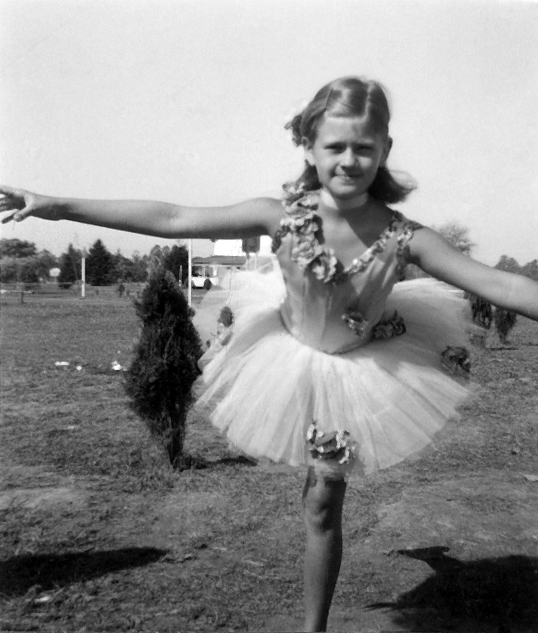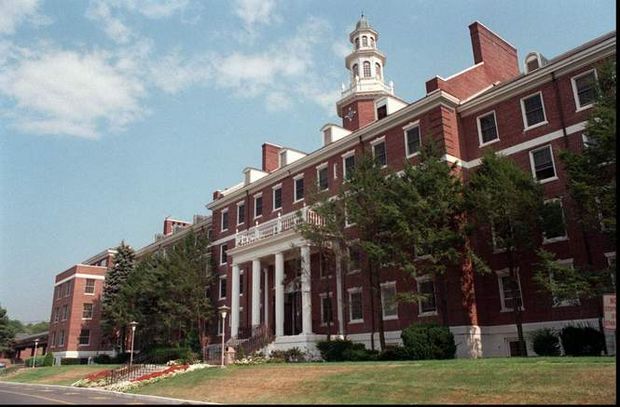As December approached, I could not contain myself, anticipating the arrival of my unknown uncle. I moved my clothes and books into my sister Blanche’s room, where I carved out a corner.
Blanche was living at Roosevelt State Hospital in Menlo Park in December 1959. She had been committed there in September. My Saturdays that fall were filled with trips to the hospital near Princeton, while my friends played and went to movies. I hated visiting her there.
The old, red brick hospital had a foreboding air, dark and dreary, beaten down like the patients it held. Visitors met with loved ones in a room that had chairs lining its walls. We looked directly at the other patients and their families during our stay. Little privacy existed and nurses observed all interactions.
 Blanche would say, “Libby, don’t look at that girl. She’s not a nice girl.” I always complied, too frightened by the building and the people it held.
Blanche would say, “Libby, don’t look at that girl. She’s not a nice girl.” I always complied, too frightened by the building and the people it held.
My newfound uncle’s visit would be a welcome diversion.
In August 1959 Blanche tried to take her own life on the day she broke up with her boyfriend Vinny.
My mother and I had spent the day at the family swim club in East Hanover. We returned to a dark, quiet house.
Bonnie Sue, our toy fox terrier, came bouncing out to greet us, jumping and wagging her tail.
“Blanche, we’re home,” we called in unison. There was no answer.
We began searching the rooms, looking for my sister. When we walked into the downstairs bathroom, the countertop was littered with empty, sample packets of painkillers, usually taken two at a time. At least fifty packets lay empty.
My mother’s face grew pale, and her eyes widened when she saw the mess. She grabbed the telephone and began to dial, but the doorbell rang just at that moment. I ran to the door, and there stood cousins Jules and Ruth Gast, who lived next door.
“Aunt Ruth, we saw your car and rushed right over,” Jules began. “Blanche said she wanted to die after she and Vinny broke up today. She took all those pills and then called her friend Eileen, who came right over. Blanche wouldn’t let her in, so Eileen came next door for us. We pleaded with Blanche to open the door for almost an hour. She became drowsy and finally did. She’s in Elizabeth General Hospital. They pumped her stomach.”
My mother had to sit down. Our bright, sunny day was now overcast.
Jules drove my mother to the hospital, while Ruth stayed with me to clean up the evidence. My hands shook as I grabbed the empty pill packs, fearing that my sister might die. How could she do such a thing, I asked myself? Why does she make life so hard for all of us? What is wrong with her?
This was the sister who brought home boys from “Down Neck” in Newark, who’d had a baby with an ex-con a year earlier at age fourteen, who beaten up teachers at school, and who staged a robbery of our parents’ home when we were very small. Half the town was afraid of her, and they didn’t have to share the same house. I lived in fear.
Blanche recovered and two months later the state of New Jersey found her guilty of attempted murder for trying to end her own life. They sentenced her to Roosevelt State Hospital, a mental institution where she remained for six months.

